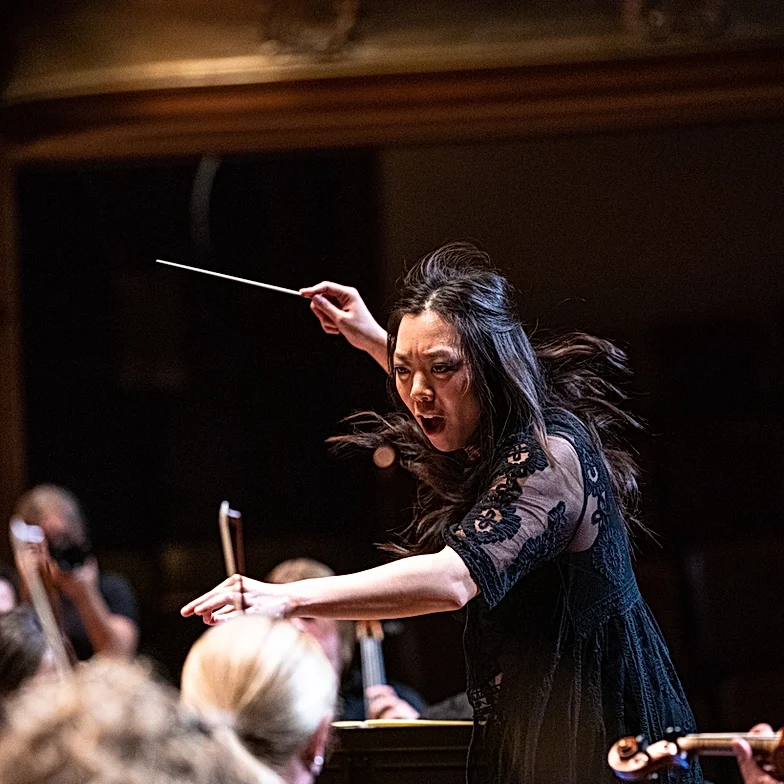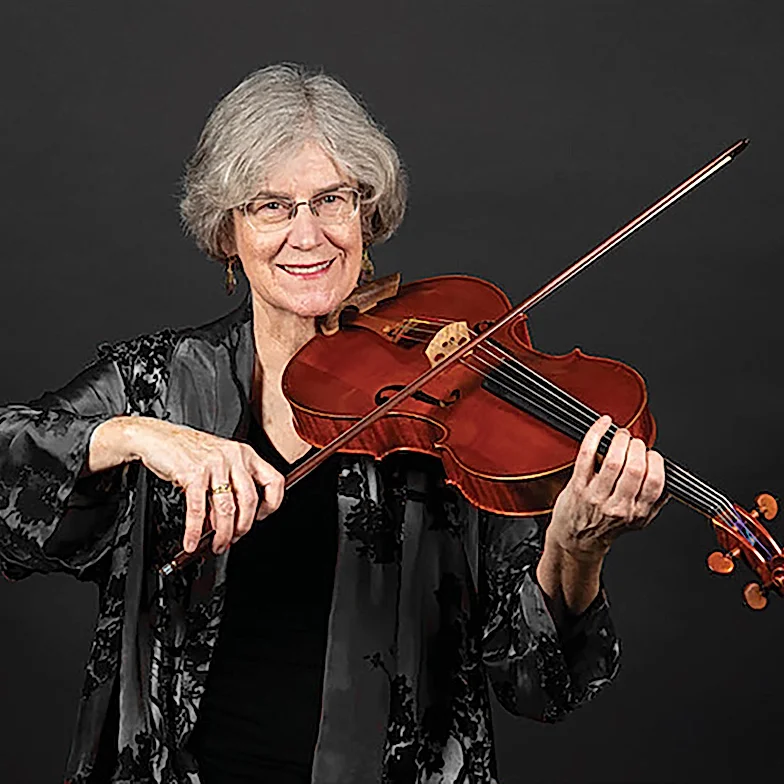Pro Arte Chamber Orchestra offers an American salute with Higdon concerto
There’s nothing quite as wonderful as when an instrument begins to breathe, and the Pro Arte Chamber Orchestra certainly knows how to make their instruments sing. Sunday afternoon’s program at Second Church in West Newton, put together by the musicians themselves, was an excellent combination of old wisdom and new ideas, and conductor Alyssa Wang was able to draw color and nuance from the ensemble to deliver exciting performances.
First on the program was Franz Joseph Haydn’s Symphony no. 95, premiered in April 1791 when Haydn was living and composing in London. Of the 12 symphonies composed in the city, Haydn’s Symphony no. 95 is the least often played. It departs from its siblings in a few key respects: it is in a minor key where the others are all major and it has a quick, attention-grabbing introduction where the others all begin more slowly.
Under Wang, Pro Arte took this somewhat lesser known symphony and breathed new life into it—the opening five notes, boldly unharmonized and powerfully sharp, are blended into a series of engorged silences, each more tense than the last, which eventually release into the development of the main motif. The motif, bound towards the secondary theme, which soon gives way for a recapitulation that presents an answer to the question posed by the first idee fixe.
The second movement introduces the grand cello solo that is to come in the third; the fourth movement, cheerful and technically tricky, is delivered in a way that effortlessly delivers the intended smile without giving it away.
At times it almost felt like the strings were holding back. Nevertheless, the intricate and delicate passages were convincingly delivered, with the violins charming and elegant, and the woodwinds having a sort of effervescent quality.
Next up was Jennifer Higdon’s Viola Concerto, which debuted in Washington DC in 2015. Pro Arte’s principal violist Anne Black was the soloist on Sunday.
Writing a solo concerto for viola is no easy task due to the difficulty of balancing the instrument’s lower tones with a chamber orchestra. In writing this piece, Higdon had a variety of goals. “I love the low sounds of the viola,” Higdon said in a 2015 interview. “But I had set this challenge for myself that I wanted something that sounded very American in its rhythms… I wanted to find the right tempo for the virtuosic writing that works optimally for the instrument.”
Higdon succeeded in writing a work that is both hauntingly American and allows the unique timbre of the viola to really shine. The first movement begins slowly as the soloist hangs on an E in a beautiful series of legato strokes, building a restless tension that breaks as the rest of the ensemble swells into a mournful chord before receding into the background.
Black was fearless in her performance of the solo part, able to make her instrument sing in a smooth sweetness that holds a hint of a granulated texture. The second movement is fast, off-kilter, and playful, and Wang’s obvious rapport with the musicians is clearly at play as she successfully and confidently leads the ensemble through these tricky passages. The third and final movement feels most like the quintessential American works, hinting at Bernstein and Copland, while retaining some semblance of the erratic rhythms of the second movement.
As with many contemporary classical works, the music sometimes meanders but unlike others, it pulls itself back to deliver themes and phrases that tug at the heartstrings.
The program ended with eight selected movements from Stravinsky’s Pulcinella Suite, which provided a short, fun, and lighthearted end to a wonderful afternoon. The ensemble lost none of its skill and passion for the music, and delivered a resounding finale.
The Pro Arte Chamber Orchestra performs Mozart’s Kegelstatt Trio and Piano Quintet May 4 in West Newton. proarte.org.
Jeremy Powers is a writer, journalist, and musician who has recently graduated from College of the Atlantic in Maine. He has written for the Cape Ann Symphony Orchestra and contributed to publications such as COAmag,
Posted in Performances

